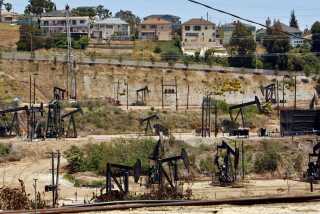Visitors Bureau Payoff Awaited : Revenues Lag but Bookings Are On Rise in Culver City
- Share via
Two years ago, a survey found that most out-of-towners had never heard of Culver City and that Southern Californians who were familiar with the city considered it old, run-down, ugly or boring.
Armed with that bad news, the City Council of Culver City voted to establish a convention and visitors bureau to spruce up the city’s image and bring in more tourist dollars. The council allocated $540,000 to the bureau over three years.
Two years later, the city is still waiting for the increase in tax revenues that was supposed to come with the bureau.
The City Council created the bureau and raised the hotel bed tax from 7 1/2% to 8% in June, 1983. Besides increased hotel occupancy tax revenue, the city also forecast increases in sales taxes from visitors shopping at Fox Hills Mall and surrounding businesses.
The city received $806,000 in bed taxes for the year ending July 1, 1984, the bureau’s first year of existence. It had hoped to bring in nearly $1.1 million. The city, which expects to bring in $900,000 this year, had projected nearly $1.2 million in bed tax revenues.
The effect of the tourist bureau on retail sales--and sales taxes--has not been evaluated.
But Director Kay Briski said the bureau is now making bookings that will produce significant tax revenue.
“Now that people are finding out about Culver City they are taking more of a look at us,” Briski said. “We are booking some convention groups at this point that will be coming in not too far down the road. We also have a couple of 1986 and 1987 bookings.”
Proximity to Los Angeles International Airport and its central location are the city’s strongest selling points, Briski said.
The bureau has made special appeals to professional meeting planners who are flown into Los Angeles and housed in complimentary rooms at the city’s three largest hotels, the Pacifica, Howard Johnson’s and Ramada Inn.
The three-member convention and visitors staff also attends meetings and conventions to encourage other groups to come to Culver City, and distributes promotional material.
The bureau got off to a slow start after the death of its first director, Robert Lichtenhan. So few of its projects were carried out that the bureau’s board of directors asked the city to delay a $50,000 advance. Briski was hired in February, 1984.
Local tourism also suffered during the Olympic Games. Like most Southern California communities, Culver City hoped to share in the anticipated influx of tourists and was disappointed when they stayed away.
“Since the Olympics I think we have shown some very strong progress,” said councilman Paul Netzel. “That was a very slow period. In the next fiscal year (ending June 30, 1986) I think we will show a big payoff.”
Sometime before then, the council will have to consider whether to continue funding the bureau.
Netzel said its future will depend largely on whether the sales and hotel taxes increase. But he said other factors will be considered, such as the community pride generated last winter when the bureau spearheaded the entry of Culver City’s first float in the Rose Bowl Parade.
Mayor Paul Jacobs voted against forming the bureau, saying that the hotels should fund it. He said he now supports it and that the hotels contribute their employees and facilities to help promote the city.
Jacobs agreed with Netzel that next year’s tax figures will give a more accurate measure of the selling power of the bureau.
More to Read
Sign up for The Wild
We’ll help you find the best places to hike, bike and run, as well as the perfect silent spots for meditation and yoga.
You may occasionally receive promotional content from the Los Angeles Times.






